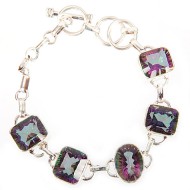Hello and welcome to Custom Jewelry by Design.
Metal Beads
More than 1000 new designs of metal beads, silver beads and aluminum beads.
Wholesale Jewelry
Latest design wholesale jewelry, smartly priced to meet all wholesale requirements.
Customization
We customize as per your needs!!
Send us your ideas or designs and we will do sampling as per your needs. Our artisans are well trained for producing any design commercially.
Latest Products
-

Sterling Silver Amethyst...
Product Details: Product Code MCN-6002 Jewelry Type Necklaces Place of Origin India …
-

Sterling Silver Peridot...
Product Details: Product Code MCN-6001 Jewelry Type Necklaces Place of Origin India …
-

Sterling Silver Mystic...
Product Details: Product Code MCB-5005 Jewelry Type Bracelets Place of Origin India …
-

Sterling Silver Green...
Product Details: Product Code MCB-5004 Jewelry Type Bracelets Place of Origin India …
Copyright ©2013 Wholesale Jewelry | About Us | Terms of Use | Privacy Policy | Call us: 1-800-801-0168






